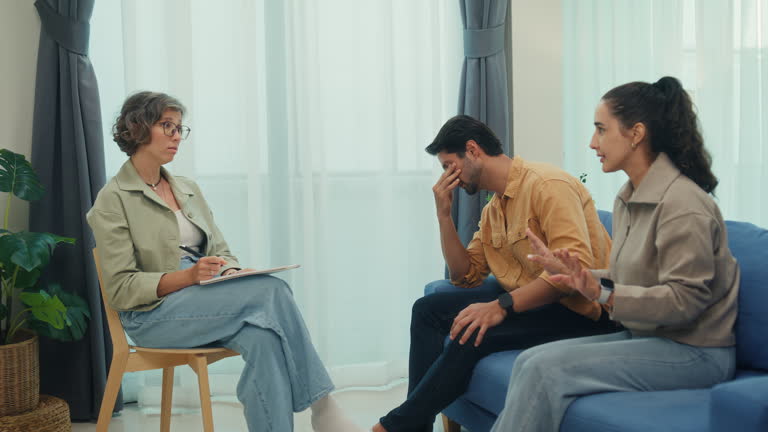Trust forms the backbone of every relationship. When broken, rebuilding it feels overwhelming. In Singapore, couples from all walks of life struggle with emotional wounds caused by betrayal, dishonesty, or emotional distance. While some attempt to move forward alone, many turn to therapy for relationship issues to begin a structured path toward healing. The guidance of a professional offers clarity, support, and tools that reconnect people.
This article explores how therapy helps restore trust, why it matters in today’s context, and what couples in Singapore can expect from the process. We’ll also cover the roots of mistrust, signs it affects a relationship, and how individuals can contribute to change.
Understanding Trust Issues in Relationships
Before exploring solutions, we must understand the problem. Trust issues arise when one or both partners feel unsafe emotionally. They may fear betrayal, abandonment, or judgment. These fears often develop after specific incidents but can also grow from past trauma, unresolved arguments, or broken promises.
Common Causes of Trust Breakdown
- Infidelity: One of the most cited triggers, infidelity deeply wounds the betrayed partner.
- Deception: Lies, even about minor issues, chip away at confidence in a partner’s words.
- Neglect: When one person feels unheard or ignored, emotional distance sets in.
- Family History: Childhood experiences with unreliable caregivers shape adult attachment styles.
- Poor Conflict Management: Frequent unresolved fights leave lingering tension.
When these problems repeat, they condition the brain to expect disappointment or danger in the relationship.
How Trust Issues Affect Relationships?
Trust issues do not remain hidden for long. They spread into daily habits, thoughts, and reactions. Left unchecked, they harm intimacy and connection.
Signs of Trust Erosion
- Constant checking or suspicion
- Difficulty sharing thoughts or feelings
- Reading into tone or text messages
- Emotional withdrawal
- Inability to accept apologies
- Arguments over misunderstandings
Over time, the relationship may feel more like a battlefield than a partnership. Healing trust does not happen by ignoring these symptoms. It requires deliberate effort, guided insight, and sometimes outside help, which is where relationship therapy plays a key role.
Why Therapy Makes a Difference?
When trust cracks, emotions often take over. Many couples repeat old arguments or cycle through blame and silence. Therapy provides structure. A trained therapist listens without judgment, clarifies emotions, and leads both people toward understanding.
In Singapore, more couples now seek therapy without shame. Changing attitudes around mental health make it easier to ask for help. A safe space to speak opens doors that stress and fear had sealed shut.
What to Expect in Relationship Therapy?
Every session aims to restore the connection. But the process isn’t about forcing forgiveness. It’s about exploring emotions honestly and learning new ways to interact.
1. Creating a Safe Environment
- The therapist sets a neutral space where both partners feel respected. They keep the conversation balanced and focused. Even heated topics get managed with care.
2. Identifying Core Problems
- Rather than just addressing surface issues, therapy uncovers root causes. Why does one partner check messages? Why does the other avoid certain topics? These questions lead to deeper truths.
3. Rebuilding Communication
- Trust lives in small exchanges. The therapist helps both people rebuild how they talk and listen. This step reduces assumptions and replaces them with empathy.
4. Setting Clear Boundaries
- Boundaries protect recovery. They help both partners feel secure. This could include agreements on transparency or personal space.
5. Tracking Progress
- Trust repair takes time. The therapist guides progress slowly. Even small signs — open conversation, kind gestures, consistency — signal healing.
Types of Therapy Used
In Singapore, therapists use several approaches depending on the couple’s needs. While methods differ, the goal remains the same: restore emotional safety.
1. Emotionally Focused Therapy (EFT)
- This approach helps partners recognise emotional patterns. It strengthens the bond by reducing defensiveness and fear.
2. Cognitive Behavioural Therapy (CBT)
- CBT targets negative thinking. It helps partners shift from “I can’t trust you” to “I feel insecure when this happens.”
3. Integrative Therapy
- Some therapists blend techniques. They adjust sessions to suit cultural background, history, or belief systems.
The Role of Individual Work
Not all healing happens together. Sometimes, one partner must reflect alone. Individual therapy supports self-awareness and emotional regulation. It can uncover past trauma or harmful patterns that fuel current conflict.
Benefits of Parallel Work
- One person may start therapy first
- Each can express thoughts freely
- Both grow stronger on their own
- Self-growth leads to shared growth
Choosing therapy for relationship issues as a team shows commitment. But individual healing strengthens the foundation.
Barriers to Seeking Help in Singapore
Despite changing views, some couples hesitate. Cultural expectations, stigma, or fear of exposure stop them. Yet the cost of avoiding help is greater — years of mistrust, poor communication, and emotional distance.
Common Misconceptions
|
Misbelief |
Clarification |
|
“Therapy is only for failing couples” |
Many healthy couples seek support early |
|
“Therapists take sides” |
Professionals remain neutral and objective |
|
“It won’t work unless both attend” |
One person’s growth still shifts the dynamic |
|
“Talking won’t fix anything” |
Conversation is the tool for change |
Breaking these myths allows couples to grow without shame.
What Makes Therapy Successful?
Therapy works when both partners engage sincerely. Trust healing needs consistent actions, not just words. Several key habits improve outcomes.
1. Honesty in Sessions
- Pretending or hiding feelings stalls progress. Therapists work best when couples bring their true thoughts.
2. Practising Skills Outside
- Sessions teach tools. Real change comes when couples practise those skills daily.
3. Patience with the Process
- Old wounds take time to heal. Some sessions feel hard. Others feel hopeful. Staying committed matters most.
Rebuilding Trust Step-by-Step
While every relationship follows its own pace, rebuilding trust often follows clear stages.
Step 1: Acknowledge the Break
- Both people accept that trust has weakened. They agree to work together, not against each other.
Step 2: Express Emotions Honestly
- Sadness, anger, regret, and fear must surface before healing can begin.
Step 3: Clarify Expectations
- Each person defines what they need to feel safe again. Boundaries and goals become visible.
Step 4: Rebuild Through Actions
- Words mean little without follow-through. Therapy helps plan and observe these steps.
Step 5: Create New Meaning
- Over time, couples build new memories. The past doesn’t disappear, but it loses its power.
How to Choose a Suitable Therapist?
Finding the right therapist makes a difference. Look for someone who:
- Has experience with trust issues
- Creates a balanced and calm setting
- Respects cultural background
- Offers practical tools, not just talk
It’s okay to try more than one. Comfort and connection matter.
Signs That Trust Is Returning
Healing doesn’t come with fanfare. It appears quietly through daily interactions.
- Honest conversations grow
- Fewer misunderstandings occur
- Both partners feel more relaxed
- Past events no longer control moods
- Affection returns without tension
When these signs appear, couples feel hopeful again. The wound may not vanish, but it stops bleeding.
Conclusion
Trust is fragile but not impossible to restore. In Singapore, couples face modern pressures that challenge even the strongest bonds. When betrayal or distance enters, the path forward feels uncertain. But with guidance, honesty, and time, healing begins.
Relationship therapy provides more than comfort. It teaches structure, builds awareness, and opens space for repair. Whether working together or alone, choosing therapy for relationship issues shows courage. It marks the first step toward reconnection, not just recovery.
If you or someone you know struggles with trust in a relationship, remember this: help exists, healing is possible, and love deserves a chance to grow again.






